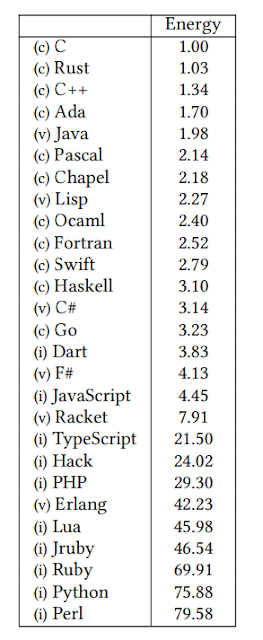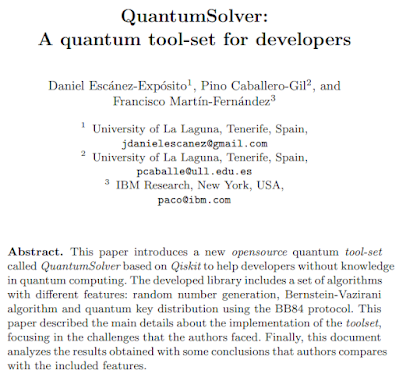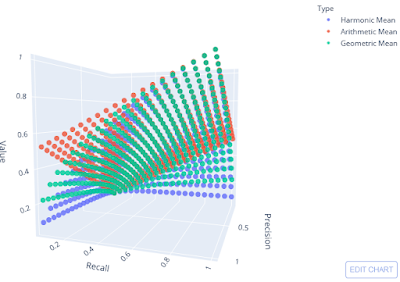It is helpful to have an advisor or a support group from the early Ph.D. program applicants to advanced ABD (All But Dissertation) students.
Working with an experienced coach provides the outside perspective you need to identify possible issues or opportunities.
The owner of this group has decades of academic experience as a mentor, administrator, scientist, advisor, professor, and graduate student.
This group is created to help you achieve your ultimate goal at this stage of life: defend your Ph.D. dissertation.
Learn how to navigate and optimize your critical areas of effort – coursework, research, Ph.D. examinations, and dissertation writing process.
Your effective leadership as a student, scientist, writer, and (sometimes) a teacher needs guidance.
This group can help you build a roadmap for an enjoyable and ultimately successful process that leads to a successful dissertation defense.
Reach out to the group owner for a 1:1 consultation.
This NSF survey of earned doctorates (SED) is an in-depth study of doctoral dissertations defended in recent decades. It is an excellent resource for organizations that formulate their R&D plans. To some extent, we need to align with the research interests of young scientists and degree-granting academic institutions. However, it is also an excellent resource for those young scientists looking for research areas.
https://lnkd.in/gstQUHt8
#NSF #doctorate #doctoralstudent #research #researchanddevelopment #researchandinnovation
This book is a perfect example of why, in some areas of science, Ph.D.-level studies are indispensable. If we review this book and compare it to text from 10-20 years ago, it will be evident that the complexity has increased. We need to have enough time for studying, programming, and inventing new algorithms. A master's degree program might not be enough time to get started in such areas as machine learning.
Developing new deep learning neural network algorithms is complex. It requires a solid understanding of calculus, linear algebra, probabilistic theory, and software engineering. This book focuses primarily on deep #perceptron theory and is an excellent advanced resource for a relatively small group of developers and scientists. Hopefully, texts like this will help grow the deep learning R&D community.
The authors approach the substantial complexity of deep learning by decomposing the theories into elementary constituents. As a result, it is easier to analyze phenomena that emerge from the vast number of system components that comprise typical deep neural networks. #deeplearning #neuralnetworks #linearalgebra #calculus #probabilistictheory #ai #artificialintelligence #softwareengineering
Programming Languages and the Environment
Developing systems that use as little energy as possible is an important goal for applications that depend on minimal energy resources. This analysis shows vast differences in energy consumption among the leading programming platforms.
Protecting the #environment by reducing the energy footprints of algorithms might be the beginning of initiatives in software engineering applicable on Earth for environmental reasons and space exploration for reasons related to limited energy production capabilities. This is not only an issue of picking a programming language. It is also about efficient system architectures. Up to this point, there were islands of applications that required efficiency as a number one consideration due to fixed hardware architectures or real-time performance requirements. In other areas, system efficiency was a secondary consideration because of the low cost and flexibility of adding additional processors, e.g., enterprise cloud computing.
https://medium.com/codex/what-are-the-greenest-programming-languages-e738774b1957
#programming #softwareengineering #memorymanagement #c #cplusplus #environmentalsustainability #algorithms #software #power #energy #cloudcomputing #language #hardware
National Science Foundation is one of the most excellent resources for researching computing-related Ph.D. degree programs. Also, receiving a grant from #NSF belongs to the most prestigious achievement.
Not everybody might be interested or eligible to apply to the graduate fellowship program listed below. However, such divisions as networking, cyberinfrastructures, intelligent systems, computing, and engineering are great places to look for research areas.
Also, the outline and application requirements would be a good guide for applying to any university or grant-issuing institution. This announcement focuses on students who received a bachelor's degree and are willing to go directly into a research-oriented Ph.D. program. In this situation, the Ph.D. - level coursework will most likely be similar to the one required for master's degrees. The number of credits obtained by Ph.D. students would likely be the same as those obtained by students enrolled in master's degrees. However, universities might not be willing to grant a master's degree if the student decides to quit the Ph.D. program.
https://beta.nsf.gov/funding/opportunities/computer-and-information-science-and-engineering-graduate-fellowships-0 #science #research #phdstudent #phdresearch #applyingtophd #grants #fellowships #nsffunded #nsffellowship #universities
Jack Brzezinski, Ph.D., has two decades of senior leadership experience transforming organizations with scalable enterprise AI and data analytics. Growth mindset, product developer, team builder, negotiator, and consensus builder. A lifelong learner with an advanced degree in artificial intelligence, graduate business, and structural engineering.
Content Moderation
Finding a dissertation area is a very strategic decision. Content moderation will be a great research area in the coming years. I can see many open questions in this paper. Many of those questions are Ph.D. dissertations waiting to happen.
This is an excellent overview of content moderation concepts. As a high-level design guideline, this paper by Ruckenstein and Turunen is one of the best. For AI and NLP-driven system designers, it is a very telling document that reveals enormous challenges in defining and implementing automated content moderation. For example, the concept of the logic of care is an excellent term for tackling all kinds of “mess” and “disorder” in the platforms, not merely focusing on illegal or improper messages. Care is an ongoing process to maintain and improve the overall platform culture.
Ruckenstein, M., & Turunen, L. L. M. (2020). Re-humanizing the platform: Content moderators and the logic of care. New Media & Society, 22(6), 1026–1042. https://doi.org/10.1177/1461444819875990
https://journals.sagepub.com/doi/10.1177/1461444819875990
Model evaluation in data analytics is one of the most complex issues. We use recall, precision, ROC, and many different measures to understand the model quality. This book is an intense discussion that complements the mainstream #AI and #ML technical documentation. It focuses on the human mind as an ultimate measuring device, noise in data, and the role of judgment. The authors provide a very insightful discussion that will help data scientists look more critically into developing data sets and interpreting algorithmic analytics.
#analytics #datascientists #dataanalytics #modeling
Quantum Computing Tools and APIs
It is hard to overestimate the future role of quantum computing for complex algorithms. This paper is an excellent blueprint for research into developing tools for the future of computing, where high-level APIs will be needed to democratize the new tech.
Several quantum machine learning algorithms have already been implemented as testbeds or early adopter enterprise platforms. We are at the stage where quantum implementation is benchmarked against "traditional" mainstream ML algorithms. Today we can characterize quantum computing platforms as fairly reliable small-scale quantum devices.
The technical complexity and energy expenditure required for running present-day adiabatic quantum computers are substantial. Moreover, replacing existing computing systems with quantum might not be easy due to the environmental impact. However, assuming a rapid pace of innovation, advanced algorithms, i.e., machine learning on reliable quantum computers, will soon become mainstream. Future benefits from quantum speedup probably outweigh the problems, but new severe risks regarding reliability, trustworthiness, safety, and security will also surface.
Today high-level application programming interfaces for quantum computing are increasingly available (QISKIT, CIRQ, etc.). #algorithms #machinelearning #innovation #quantumcomputing
https://arxiv.org/pdf/2209.12698.pdf
Predictive Model Accuracy for Low-frequency Events
The model evaluation theory and practice can be vastly improved in many application contexts.
While modeling low-frequency events is undoubtedly possible, model evaluation is challenging. A rare false positive or false negative prediction might be disastrous, but keep the model at close to 100% accuracy. Depending on the context, false positives might be acceptable. In contrast, false negatives are not. For example, a model saying that a machine requires service while operating properly in predictive maintenance applications is not a disaster (false negative). On the other hand, imagine the consequences of an overly confident model, producing false positives in aerospace or military technology contexts where many lives depend on the model.
These discussions are sometimes called "yes-means-yes," i.e., we don't want false positives. But, conversely, "no-means-no" tests mean that we want to ensure that there are no false negatives.
Each evaluation method can offer valuable insight, especially in combination (precision-recall, #ROC, #AUC, and #probabilistic extensions for error understanding). Often the evaluation methods lack the degree of direct
interpretability when compared to threshold-based counterparts.
The #harmonicmean, used in F1 calculation, penalizes unequal and shallow precision and recall values.
The F1 score seems well-suited for the discussion since it is a harmonic average of precision and recall.
Model evaluation metrics and many insightful examples can be found in this insightful publication by Zeya LT. #modeling #AI #ML #F1 #precision #recall #modelevaluation #evaluationmetrics
https://towardsdatascience.com/essential-things-you-need-to-know-about-f1-score-dbd973bf1a3













No comments:
Post a Comment
Note: Only a member of this blog may post a comment.